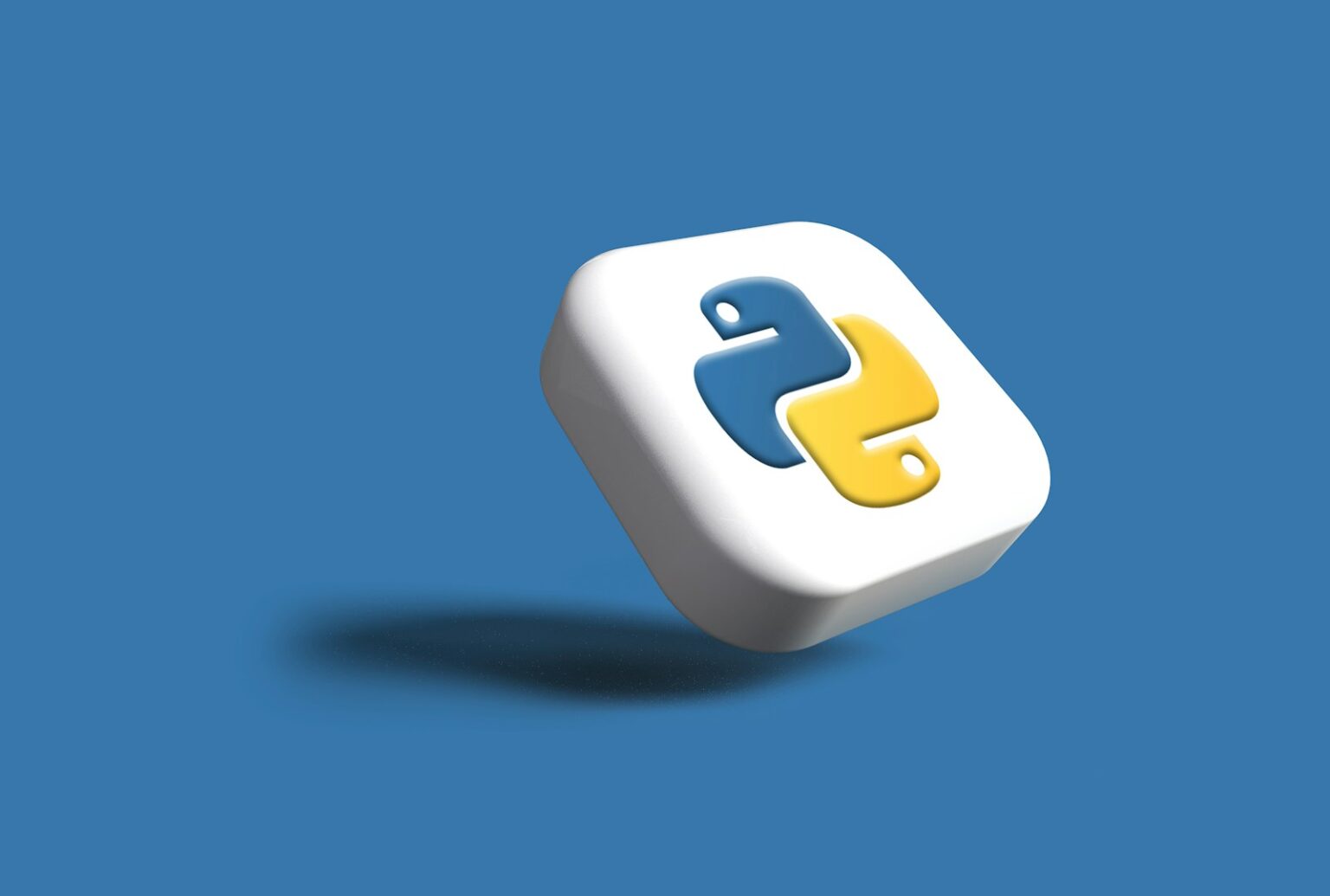A comprehensive guide to mastering Python programming through quality online courses and platforms.
Quick overview
Most beginners can learn Python basics in 2-6 months with consistent practice. The best courses combine hands-on coding, clear explanations, and real projects to build practical skills.
Learning time
Complete beginners typically need 250 hours of focused study to grasp fundamentals. With 1-2 hours daily, expect proficiency in 4-8 months.
Why Python is perfect for beginners
Python stands out as the ideal first programming language for several reasons. Its syntax reads almost like English, making it intuitive for newcomers. The language emphasizes readability and simplicity, allowing you to focus on learning programming concepts rather than wrestling with complex syntax.
Python is also incredibly versatile. You can use it for web development, data analysis, artificial intelligence, automation, game development, and more. This versatility means the skills you learn will transfer to many different career paths and personal projects.
Top free Python courses for complete beginners
Free courses provide an excellent starting point without financial commitment. These platforms offer structured learning paths with interactive exercises and community support.
Harvard’s CS50 Introduction to Programming with Python
Harvard’s renowned CS50 program offers a comprehensive Python course that focuses on computer science fundamentals. The curriculum progresses from basic concepts to advanced problem-solving applications, covering essential programming elements including loops, conditionals, and functions.
What makes this course special is its academic rigor combined with practical applications. You’ll learn not just Python syntax, but also how to think like a programmer and solve complex problems systematically.
Google’s Python Class
Originally created for Google’s internal training, this course is now freely available online. Taught by Google engineer Nick Parlante, it blends video lectures with hands-on exercises covering Python basics including strings, lists, loops, and file handling.
The course assumes some basic programming knowledge but explains concepts clearly. It’s particularly strong at showing how Python works in real-world scenarios at a major tech company.
MIT’s Introduction to Computer Science using Python
MIT’s approach focuses on computational thinking and problem-solving skills. The course covers not just Python syntax but also fundamental computer science concepts like algorithms, data structures, and complexity analysis.
This course is ideal if you want a deeper understanding of computer science principles alongside Python programming. The assignments are challenging but rewarding, pushing you to think critically about code efficiency and design.
| Course | Duration | Best for | Key strength |
|---|---|---|---|
| Harvard CS50P | 16+ hours | Complete beginners | Academic rigor with practical focus |
| Google Python Class | 2-day intensive | Those with some coding experience | Real-world industry perspective |
| MIT 6.0001 | 9 weeks | Future computer science students | Deep theoretical foundation |
Interactive learning platforms
Interactive platforms let you code directly in your browser without any setup. They provide immediate feedback and gamified learning experiences that help maintain motivation.
Codecademy Learn Python 3
Codecademy offers a structured, interactive Python course perfect for absolute beginners. The platform breaks down complex concepts into bite-sized lessons with immediate feedback as you code. Each lesson builds on the previous one, creating a clear learning progression.
The course covers essential Python concepts including variables, loops, functions, and data structures. You’ll complete various projects and quizzes to test your knowledge, with an AI assistant available to help explain concepts or debug code when you’re stuck.
Mimo Python Course
Mimo takes a unique approach by having you write actual Python code from day one. Instead of watching lengthy video lectures, you learn through interactive exercises that teach programming concepts through hands-on practice.
The platform offers both a fundamental Python course for beginners and a comprehensive Python AI Developer career path. The mobile app lets you learn on the go, making it perfect for busy schedules.
FreeCodeCamp Scientific Computing with Python
FreeCodeCamp provides over 300 hours of Python curriculum focused on practical applications. The course emphasizes project-based learning where you build real applications that demonstrate your skills to potential employers.
While less interactive than other platforms, FreeCodeCamp excels at showing how Python applies to real-world problems. You’ll complete five certification projects that showcase your ability to solve complex programming challenges.
Premium courses worth the investment
While free courses are excellent starting points, premium courses often provide more comprehensive content, personalized feedback, and career support services.
Angela Yu’s 100 Days of Code Python Bootcamp
Dr. Angela Yu’s course on Udemy is consistently rated as one of the best Python courses available. The 100-day structure provides daily coding challenges that build skills progressively while maintaining engagement through variety.
What sets this course apart is its focus on building real-world projects. Instead of just learning syntax, you’ll create web applications, games, automation tools, and data analysis projects. Each project reinforces the concepts you’ve learned while building a portfolio.
Jose Portilla’s Complete Python Bootcamp
With over 1.5 million students enrolled, Jose Portilla’s bootcamp is a proven choice for learning Python. The course combines clear theoretical explanations with hands-on exercises, quizzes, and mini-projects that help internalize concepts.
Jose’s teaching style breaks down complex topics into manageable, engaging lessons. Whether you’re a complete beginner or brushing up on fundamentals, his clear explanations make learning Python both effective and enjoyable.
Colt Steele’s Modern Python 3 Bootcamp
Colt Steele’s course is particularly beginner-friendly, using analogies and visual explanations to make technical concepts accessible. The course emphasizes best practices, clean coding techniques, and real-world tools like Git and virtual environments.
This bootcamp is ideal if you’re transitioning into software development as a career. It covers not just Python programming but also the professional tools and practices you’ll need in a development role.
| Course | Platform | Duration | Price range | Special features |
|---|---|---|---|---|
| 100 Days of Code | Udemy | 100 days | $50-200 | Daily challenges, project portfolio |
| Complete Python Bootcamp | Udemy | 22 hours | $50-200 | Comprehensive exercises, capstone projects |
| Modern Python 3 Bootcamp | Udemy | 29 hours | $50-200 | Professional tools, best practices focus |
YouTube channels for visual learners
YouTube offers excellent free Python tutorials from experienced instructors. These channels provide visual explanations that complement text-based courses perfectly.
Corey Schafer
Corey Schafer’s YouTube channel is widely regarded as one of the best resources for learning Python. His tutorials cover everything from basic syntax to complex topics like web development and data visualization. Each video is clear, thorough, and well-organized by topic.
What makes Corey’s content special is his ability to explain complex concepts in simple terms. His tutorials progress logically, building on previous knowledge while introducing new concepts at an appropriate pace.
CS Dojo
CS Dojo offers code-along tutorials perfect for beginning and intermediate students. YK Sugishita, the channel founder, creates content specifically designed for complete beginners, explaining programming concepts without being overly technical.
The channel covers not just Python syntax but also general programming problem-solving techniques and career advice for aspiring developers.
Programming with Mosh
Mosh Hamedani’s channel provides comprehensive Python tutorials with a focus on practical applications. His teaching style emphasizes building real projects that demonstrate how Python solves actual business problems.
The content is structured professionally, with clear progression from basics to advanced topics. Mosh’s industry experience shows through practical examples that mirror real development work.
University courses for academic depth
University-level courses provide the most comprehensive and academically rigorous Python education. These courses often include theoretical foundations that other platforms skip.
University of Michigan – Python for Everybody
Dr. Charles Severance’s “Python for Everybody” course on Coursera is specifically designed for absolute beginners. The course starts with basics and progresses to complex data-handling techniques, making it ideal for those interested in data analysis and automation.
The course includes video lectures, quizzes, and hands-on assignments that reinforce learning. While you can access content for free, completing assignments and earning certificates requires payment.
edX Python courses
edX hosts Python courses from top universities including MIT, Harvard, and Microsoft. These courses maintain academic standards while being accessible to beginners. You can audit most courses for free, paying only if you want verified certificates.
The platform’s strength lies in its combination of theoretical depth with practical applications. Assignments are challenging but provide deep understanding of programming concepts.
Choosing the right course for your goals
The best Python course depends on your learning style, available time, and career goals. Consider these factors when making your choice.
| Your goal | Recommended approach | Best courses |
|---|---|---|
| Quick task automation | Focus on practical tutorials | Corey Schafer YouTube, Google Python Class |
| Career change to programming | Comprehensive bootcamp-style course | Angela Yu’s 100 Days, Jose Portilla’s Bootcamp |
| Data science preparation | Math-heavy with statistics focus | Python for Everybody, MIT 6.0001 |
| Academic computer science | Theory-focused university course | Harvard CS50P, MIT courses on edX |
| Hobby programming | Flexible, project-based learning | Codecademy, FreeCodeCamp, YouTube tutorials |
Learning strategies that accelerate progress
The course you choose matters, but how you approach learning determines your success. These strategies help you master Python more effectively.
Practice coding daily
Consistency beats intensity when learning programming. Coding for 30 minutes daily produces better results than cramming for hours once a week. Regular practice helps concepts stick and builds muscle memory for common programming patterns.
Set up a development environment on your computer early in your learning journey. While browser-based coding platforms are convenient for starting, working with real development tools prepares you for actual programming work.
Build projects beyond tutorials
Following tutorials teaches syntax, but building your own projects develops problem-solving skills. Start with simple modifications to tutorial projects, then gradually tackle original ideas. Projects reveal knowledge gaps that passive learning misses.
Document your projects on GitHub or a personal website. This creates a portfolio that demonstrates your skills to potential employers or collaborators.
Join programming communities
Learning alone can be isolating and frustrating. Python communities like Reddit’s r/learnpython, Stack Overflow, and Discord servers provide support when you’re stuck and motivation to keep going.
Don’t be afraid to ask questions. Experienced developers were beginners once and generally enjoy helping newcomers learn.
Common mistakes to avoid
Many beginners make predictable mistakes that slow their progress. Avoiding these pitfalls helps you learn more efficiently.
Tutorial hell trap
Tutorial hell happens when you endlessly watch tutorials without building anything original. While tutorials teach syntax and concepts, they don’t develop the problem-solving skills needed for real programming work.
Break out by attempting projects slightly beyond your current skill level. Getting stuck and figuring things out builds confidence and reveals what you need to learn next.
Perfectionism paralysis
Beginners often spend too much time trying to write “perfect” code instead of code that works. Your first programs will be messy and inefficient—that’s completely normal and expected.
Focus on making your code work first, then improve it. Working code that you can improve is infinitely better than perfect code that doesn’t exist.
Ignoring error messages
Error messages feel intimidating to beginners, but they contain crucial information about what went wrong. Learning to read and understand errors is a critical programming skill that saves enormous time debugging.
Instead of panicking when you see an error, read it carefully and try to understand what it’s telling you. Most Python error messages are surprisingly helpful once you learn to interpret them.
After completing your first course
Finishing a Python course is just the beginning of your programming journey. Here’s how to continue developing your skills effectively.
Specialize in an area of interest
Python’s versatility can be overwhelming once you know the basics. Choose a specialization that interests you—web development, data analysis, machine learning, automation, or game development—and dive deeper into that area.
Specializing gives you direction for continued learning and makes you more valuable in the job market. It’s easier to become very good at one thing than mediocre at everything.
Contribute to open source projects
Open source contribution teaches you how professional software development works. Start small by fixing documentation or reporting bugs, then work up to code contributions as your skills improve.
GitHub hosts thousands of beginner-friendly Python projects actively seeking contributors. This experience looks excellent on resumes and builds professional networks.
Consider certification
While not required for employment, Python certifications can validate your skills and boost confidence. The Python Institute’s PCAP (Certified Associate in Python Programming) is well-respected and comprehensive.
Certifications are particularly valuable if you’re changing careers and lack formal programming education or work experience.
Setting realistic expectations
Understanding what to expect helps you stay motivated during challenging periods. Learning programming requires patience and persistence.
Timeline for different skill levels
Complete beginners typically need 2-6 months to learn Python basics with consistent daily practice. Reaching intermediate proficiency takes 6-12 months, while becoming truly advanced requires years of continuous learning and practice.
These timelines assume regular practice and project work beyond just watching tutorials. Your progress depends on available study time, prior experience, and learning approach.
The learning curve reality
Programming has a steep initial learning curve followed by periods of rapid progress and occasional plateaus. The first few weeks feel overwhelming as you learn basic syntax and concepts. Then progress accelerates as things start clicking together.
Expect frustration, especially when debugging complex problems. Every programmer experiences this—it’s part of the learning process, not a sign you’re not cut out for programming.
Final recommendations
The best Python course is the one you’ll actually complete. Choose based on your learning style, schedule, and goals rather than just looking for the “perfect” course.
For most beginners, starting with a free course like Harvard’s CS50P or Codecademy makes sense. You can always supplement with premium courses or specialized content once you’re committed to learning Python seriously.
Remember that courses teach you syntax and concepts, but real skill comes from building projects and solving problems. Use courses as your foundation, then spend substantial time coding independently.
Python opens doors to countless opportunities in technology, data science, automation, and more. The time you invest in learning it well will pay dividends throughout your career. Start with any quality course from this guide, commit to daily practice, and begin your programming journey today.















